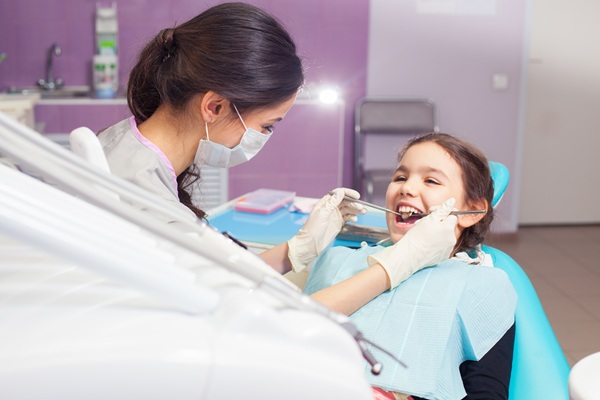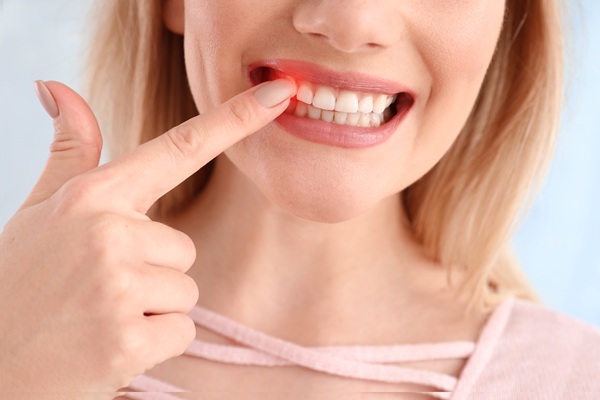Are My Bleeding Gums a Sign of Gum Disease?

Most people don't give a second thought to gum disease. However, while brushing your teeth, maybe you noticed a slightly pink tinge when you spat out. You also discovered some bleeding while flossing. Although minor bleeding may not seem like a severe problem, recurrent gum bleeding is a condition you should never ignore. Bleeding gums is a result of several factors, including gingivitis and pregnancy. Altering your oral care regimen can also cause gum bleeding initially.
How gum disease causes bleeding gums
If you do not maintain good oral care routines such as regular brushing and flossing, you give food debris a chance to bind with bacterial plaque and accumulate in your teeth grooves. The plaque is sometimes visible as a white or yellowish film on the gums. As the bacteria accumulate and grow, they cause gum irritation, leading to gingivitis. Gingivitis is the first stage of gum disease, and the typical symptom is bleeding gums. Other signs of gingivitis include sensitive gums, bad breath and red gums.
If you fail to treat gingivitis, it will worsen to the point where the gums may start pulling back from the teeth, creating pockets that allow bacteria to accumulate and penetrate the teeth. As more bacteria infect the tissues, your oral health degenerates considerably into periodontitis. Fortunately, the early stage of gum disease is reversible. The dentist can clean away the plaque and bacteria deposits from your teeth. The following are ways to prevent bleeding gums:
Preventing gum disease and bleeding gums
Improve your oral hygiene
As mentioned earlier, the most popular cause of bleeding gums is plaque accumulation on the gumline. Failure to clean the plaque immediately will allow it to harden into tartar. The best way to stop plaque in its tracks is to improve your oral care regimen.
Make sure you brush your teeth at least twice daily using a fluoride toothpaste. Floss daily, and ensure you visit your dentist regularly, not just when there is an issue.
Check your dental tools
If your oral hygiene is optimal and you still go for your biannual dental appointments, then your oral care tools may be responsible for making your gums bleed. You may feel that a toothbrush with hard or medium bristles will clean your teeth better, but they could actually be irritating your gums and causing them to bleed. According to the American Dental Association, you should use a soft-bristled toothbrush to clean your teeth to prevent irritation.
Sometimes, it may not be the tool, it could be how you are utilizing it. If you have not flossed recently, start doing it again. You might notice some blood on your gum line, but that will stop. Remember to be gentle and try not to press the floss too hard.
Visit the dentist
If improving your oral hygiene and adopting a healthier diet did not stop the bleeding gums, then you need to book an appointment with the dentist. The dental expert will evaluate your gums and teeth to know if you are dealing with advanced gum disease. If treatment is required, you may be referred to a periodontist, who is an expert at treating gum disease.
Request an appointment here: https://www.bakersfielddentistry.net or call Premier Family Dentistry at (661) 238-1197 for an appointment in our Bakersfield office.
Check out what others are saying about our services on Yelp: Read our Yelp reviews.
Recent Posts
Choosing a kid friendly dentist is critical for your child’s dental health. The right dentist understands a young patient’s needs and their development. As a parent, you need to be aware of those big moments in a child’s oral wellness. This will help you keep on top of good oral hygiene at every stage of…
Periodontal gum disease treatment helps prevent the progression of gum disease, which protects your oral and overall health. Periodontal disease, commonly referred to as gum disease, affects the tissues supporting the teeth, potentially leading to tooth loss if left untreated. A peridontist's early diagnosis and treatment of this condition can significantly improve your long-term gum…
When searching for a dentist near me, it is important to find someone who provides excellent care and makes every visit a positive experience. A great dentist combines skill, modern tools, and a patient-focused approach to help maintain and improve your oral health. Whether you need a routine checkup or a more complex procedure, choosing…
Root canal therapy can treat and preserve natural teeth affected by deep tooth decay, infection, inflammation, or traumatic injury. The treatment focuses on removing the compromised tissue within the tooth, protecting surrounding teeth, and maintaining long-term oral health. That way, patients can avoid having to go through the trouble of getting tooth replacements that require…


